Can you imagine spending even a day without using the internet to learn new things, find important commercial information, finish work, stay entertained or be connected with your loved ones? Today, the number of global internet users is on constant upswing and businesses cannot afford to not have an online brand presence. But what if you need to create an immediate buzz around your product/service offering and start generating leads? Here, we take you through the nitty-gritty of PPC marketing, a valuable and instant booster of site traffic.
What is PPC/ Pay Per Click
PPC or pay-per-click marketing is the process of advertising in the paid ads section of Google or other search engines’ SERPs (search engine results page). As the name suggests, you only pay when someone clicks on your ad and is led to the landing page you pre-set as the destination for them.
Pay Per Click deals entirely with web traffic that is paid for. The cost per click is governed by many factors, including your business domain and keyword competition, quality score and so on, as detailed in the subsequent sections. PPC advertising is a controlled, measured and highly budgeted way of reaching your target audience. It has gained a positive reputation over the years on account of the high revenue it is capable of generating.

Major Pay-Per-Click (PPC) Platforms
-
Google Ads
For those of you who are wondering which the most popular PPC platform is, the answer is Google Ads. This advertising platform offers PPC on its search partner sites and Search Network, along with the added option of Display Networks where you can post video or image advertisements. It also offers YouTube advertising.
-
Microsoft Advertising
Formally known as Bing Ads, Microsoft Advertising is an advertising platform that allows users to advertise their PPC campaigns on its search partner sites like Yahoo and its Search Network Bing.com. It also offers more native options for advertising to users on Web properties such as MSN, which are owned by Microsoft.
-
Amazon Advertising
Amazon PPC services are among the fastest-growing PPC services in the e-Commerce segment. This platform allows users to create campaigns that are shopping focused. The campaigns are then displayed to a vast user base on Amazon’s shopping network to promote the products that they want to sell.
Other Advertising Platforms
- Facebook Ads
- Instagram Ads
- Twitter Ads
- LinkedIn Ads
- Google Ads
- Pinterest Ads
- Amazon Ads
- Bing Ads/ Microsoft Advertising/ Yahoo Ads/ AOL Ads
These paid online advertising platforms can either be used solely or in combination depending on the need and budget of your firm. Such ads can easily be displayed on mobile networks and hence ensure maximum reach and conversions.
So now you know What is Pay Per Click, let’s get started with how it works.
How Pay Per Click Marketing Works
Although paid ad space can be bought on social media channels, YouTube, the Google Display Network (which is made up of numerous display/publisher sites and apps looking to make a quick buck), etc. this section will explain the many complexities of PPC for text ads on Google.
Types of PPC Ads
PPC in digital marketing fall into three major categories:
-
Text Ads
A text ad, as the name suggests, is the textual ad format. The format and text limit is set by the PPC platform being used. These are the most commonly available formats when people search for content on the PPC platform. The simplest format of text ad has a headline, URL and two lines of description.
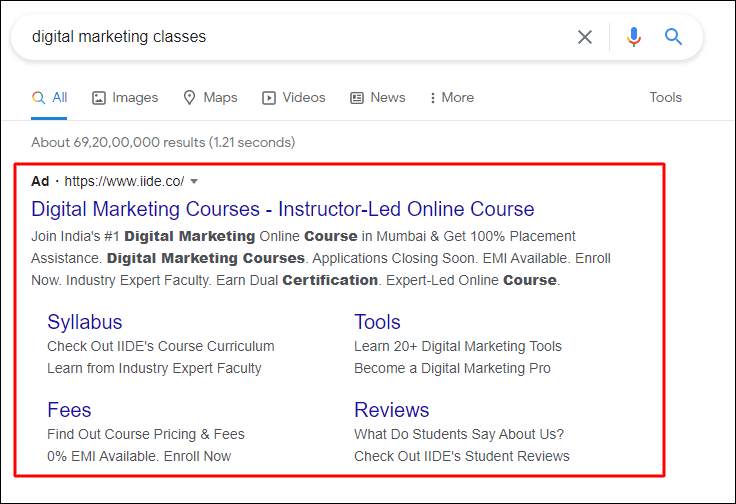
-
Display Ads
Display ads can be as images, text or video graphics. There are predefined constraints that need to be followed by the brand for advertising the product as paid display ads. The visual creation of the ad must comply with the norms of the relevant search page or website.

-
Shopping Ads
Shopping ads appear when the searcher submits a query on the search engine page or the shopping engine page. As a result, an image with price, rating, name, specifications, store, etc. are displayed. Unlike text ads, shopping ads have more visual appeal because of image use and thus are better lead qualifiers.
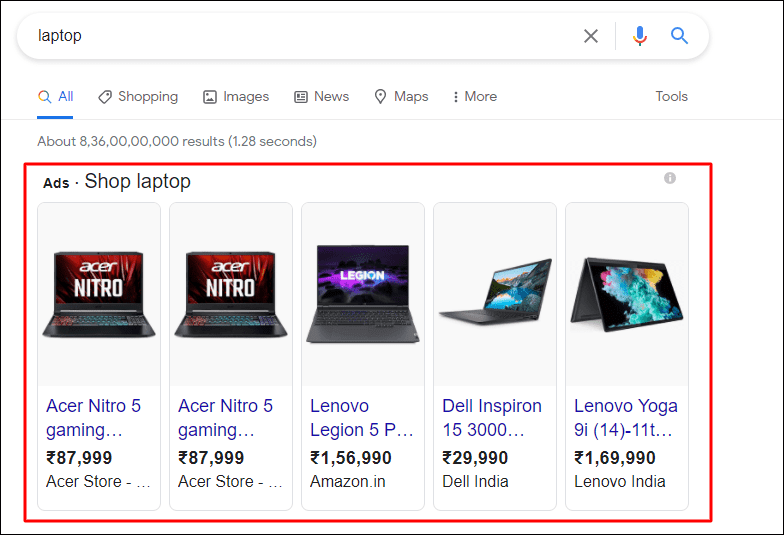
How Do PPC Auctions Work?
PPC campaigns have become a common way to acquire leads and create awareness for your brand. While you might have read a lot about optimizing campaigns and keywords, we have put together an accessible guide on how pay-per-click auctions work.
Search engines cannot show all the ads on the first page. And hence, as soon as the user’s intent in the search query matches the one targeted in the keywords, the search engine conducts a real-time auction, and all the bids get ranked.
By that logic, you can just bid higher and win the auction, right? But Google cares as much about the auction as it does about the user’s experience on the page. Hence, the highest bid for PPC in digital marketing does not guarantee the top-ranking position. Google’s ad ranking algorithm considers a whole range of factors.
1. Factors that May Impact Your Ad’s Ranking on the Google SERP
- Maximum Cost Per Click: This is the maximum budget you have set in your Google Ad account for campaign per click. You can set the limit at both keyword and ad group levels.
- Quality Score: This is where Google considers how relevant your page is to the user’s query. Along with the Maximum CPC, the Quality Score determines the rank of your page. While CPC is a quantitative factor that can be calculated in absolute terms, the Quality Score requires a little more thinking.
- Google calculates your Quality Score on a scale of 1 to 10, where a higher score indicates more relevance. The search engine will look at the expected click-through rate, assess the ad’s relevance in comparison to the query, and examine the landing page. Among these factors in PPC advertising, the landing page is considered to be the most critical element in determining your Quality Score, followed by the expected CTR and the relevance of the ad itself.
2. Ad Rank Formula
The cost per click for your campaign will depend on this formula:
CPC = Ad Rank of the Advertiser Just Beneath You/Quality Score + 0.01 (or 1% of one whole unit in your currency for Google Ads)
Keyword Research and Types
A customer can search for your business or terms broadly associated with it in many unique ways, including by seeking information about your industry or business domain/category, solutions for various pain points related to your products/services, etc. You can use AdWords’ Keyword Planner to get an estimate of the CPC, search volume and other important metrics for relevant keywords. The following are the types of keywords and keyword matches you must understand before planning a PPC campaign. Below is a video where you will understand how keywords work.
-
Broad Match Keywords
Are those search queries which trigger an ad-based purely on relevance. These keywords may not be a part of ad groups but provide the advertiser with invaluable information about the unusual ways users are searching for their brand/business. You can set any one or all of the afore-mentioned match types for various keywords within an ad group. However, exact keyword match is usually given the top priority, followed by phrase match, BMM and broad match categories.
-
Broad Match Modified (BMM) Keywords
When words within a search phrase are denoted using a ‘+’ symbol, it means that for an ad to be triggered, they must compulsorily feature in a user’s search query. In contrast, those words without a ‘+’ prefix need not feature in it at all for an ad to be shown. If, for instance, you specify ‘blue +sling +bags’ as the BMM keyword match type, Google will display your ad for search phrases that resemble it closely, including misspellings, plurals. etc. while the word ‘blue’ may not be included in it at all.
-
Phrase Match Keywords
Are marked using double quotes: “”. This type of matching will require the search keywords’ order to be exactly as specified by you, although there may be words before or after them. For e.g., if you define ‘Nike shoes in India’ as a phrase match keyword, even search queries like ‘men’s black Nike shoes in India online’ will trigger your ad.
-
Exact Match Keyword
Are denoted using square brackets. Google permits close matches in this category, including plurals, misspellings, words with changed orders, etc. although top priority is given to perfectly matching search terms.
-
Negative Keywords
There are certain keywords that you just do not want your ad to show up for. These are called negative keywords and it is important to determine which search terms fall in this category right from the outset. Remember that keywords can be pre-set at various levels, including the ad group, campaign or account umbrellas. If you have covered a keyword in one campaign, setting it as a negative keyword in other campaigns is important so you do not have to spend on it more than once.
Selection of network
While creating a PPC campaign on AdWords, you will be asked to choose the campaign type. Here, you will have to choose between Search, Display, Video, Shopping and Universal App options while also allotting the campaign an appropriate name of your choice. Make sure you pick the ‘Search’ option here. You can also categorise your campaigns based on brand and non-brand keywords or ads. Display ads (animation, images, videos, logos, etc. shown on publisher sites) are very different from search ads (textual content displayed on SERPs) and hence it is crucial that you select ‘No’ under ‘Add Display Network’ in the networks settings. Once this is done, you will have to set the daily budget and other parameters mentioned below.
-
Location targeting
It is very important that you indicate to Google where you want your ads to be displayed, including various countries, provinces, cities, districts, a certain radius around chosen locations, etc. You can also opt to not have your ads shown in specific places no matter what the search query. All of these parameters can be tinkered with under the ‘Select location to target’ setting in AdWords.
The video below explains how to set up location targeting.
-
Ad scheduling and rotation
Part of crafting an intelligent PPC marketing strategy is to know exactly when to strike, i.e. to understand when your prospective customers are most active on the internet and are likely to convert into a profitable acquisition. This is where the Ad Scheduling feature/setting comes in – here, you can pick the time of day when your ad is displayed. Conversely, you can have your ad displayed throughout the day, whenever relevant search queries trigger it. Ad scheduling is most helpful to those who have a limited spend capacity. A campaign is made of various ads and Google can use machine learning to display the top-performing ads on rotation whenever you pick the ‘optimise’ option under the Ad Rotation setting on AdWords. You can also use the ‘Do not optimise’ option which means that your ads will rotate evenly no matter which ones are outperforming the others.
-
Bidding
As mentioned earlier, the CPC depends on your competition’s ad rank and your quality score. You can choose either an automated bid strategy that is based on gaining maximum clicks, maximum conversions, enhanced CPC, etc. or a manual bid strategy by selecting a relevant option from the ‘Select your bid strategy’ dropdown menu under the Bidding settings in AdWords. You can also rely on smart bidding strategies, a technique that uses machine learning and previous account data to predict an outcome and make bids that fulfill your conversion goals. Check out this video to know more about smart bidding strategies.
-
Parts of a text ad
A text ad is made up of two headings and a description, a URL to a landing page and ad extensions, i.e. additional information about your ads that are instantaneously populated by Google based on various parameters, including location and device settings. The more information you provide under the ad extensions section, the higher your CTR. Sitelink, callout, structured snippet, image and other ad extensions further outline the USP of a brand or its product/service so that a user knows if the ad is relevant to their search query or not. Check out this video to understand more about how to write a text ad.
The Importance of Pay Per Click Marketing
If you are a new business, it is understandable to feel at odds with the ways of the internet and not know where to start marketing your brand. Read on to know why you must give PPC a shot:
-
Budget
As mentioned earlier, one of the major aspects of PPC is that as an advertiser, you only pay when your ad gets clicked on by a Google user. This helps you retain great control over your spends and understand exactly where or how your money is being spent and converted into a favourable action. The moment the money in your PPC spends account is exhausted, Google stops posting your PPC ads until you fill it up again. You can constantly review your financial situation and proceed with PPC only if you feel you are in a comfortable and advantageous position. But we must caution you that tightening your purse strings altogether will not work in your favour. This, because your PPC campaign may not be as effective if executed for very short periods. Besides, you will be unable to draw up reports that help identify patterns or confirm if the campaign was effective due to only a small quantity of performance data being available to you.
It is important to note here that although PPC may seem expensive to smaller businesses, the means justify the end in that if you pay around Rs. 300 for one click which converts into a Rs. 3000 purchase on your site, the profits you make are well worth the initial investment. To simplify the whole process of managing your funds, you can talk with your management and set aside a monthly or even quarterly budget for PPC efforts and ensure that you do not overspend.
-
Targeting made easy
Imagine if you searched for ‘bicycles for kids’ online and were shown results that were for people in the USA. In today’s day and age of extreme personalisation, you must put in ample thought into the demographic/profile of your customers. PPC advertising lets you target the users of your choice with laser focus, be it based on their age, lifestyle, location, device, the times they are most active online, etc. Even retargeting, that is attempting to convert users who initially showed interest in your brand but did not convert to active customers, is possible through PPC as you can learn from past mistakes and optimise your ads for the most impact.
-
Guaranteed results
As mentioned earlier, PPC is all about seeing faster results that are also consistent. This is all the more crucial if you are just setting up your business and want to hit the ground running by reaching out to potential customers and making them aware of your brand. There have also been instances when new websites, in their ambition to draw in maximum traffic, did not think to equip themselves to handle large visitor loads, leading to a temporary outage or crashing, thereby affecting their reputation. In such scenarios, you can pause your PPC campaigns until things are in the clear again.
-
Features that sway
PPC affords you an immense amount of control, be it through geo-targeting, ad scheduling, ad rotation, bid strategies, keyword planning/research, data reporting features and more. Not only does this help tailor-make a campaign that will reach only those you want to approach, it will also help you track where you are doing well and where you are not. Besides these helpful features, you even have the option to run multiple campaigns at the same time for various keywords and audiences. All this will add to substantial jumps in revenue once you have perfected your PPC strategy.
-
SEO and PPC go hand-in-hand
Many digital marketing novices may believe that SEO and PPC do not work well together but that could not be further from the truth. Not only does PPC help better the overall ranking of your site by instantly attracting web traffic for new keywords, it also provides you with fresh information about popular keywords that will help you gain better business/brand exposure. A clever PPC campaign can in fact enhance your SEO strategy by quickly making up for the keywords the latter may not be working that well for. Hence it is imperative that you include both these marketing techniques into the mix.
Why Use PPC?
-
Generate clicks very quickly
Once your ads are live, they will start appearing on the Search Networks and partner sites of the platform and quickly start generating clicks. PPC shows returns for marketing campaigns more quickly than other channels such as SEO, which is why it is more lucrative for businesses to invest in.
-
Is easy to measure and track
For people wondering what is Google Adwords and other advertising platforms offer for tracking and measuring the PPC campaign, the answer is- a lot! These platforms enable you to track lead conversions and even lead order values. They also enable you to track the ROI generated by specific ads and keywords.
-
Allows full control on how much you pay
Ever wondered what is pay per click’s best attribute? Complete control over how you run your ads and how much you pay. You can turn your ads on and off at your convenience. You can even determine what time of the day, or which day of the week the ads run. This provides you with complete control over the weekly or monthly expenses on the PPC campaign.
-
Targets customers effectively
One of the major advantages of PPC is that it allows businesses to reach their target audience via ads directly. PPC even allows users to target the customers based on various other factors like the devices they use, location, and time of the day.
-
Enables multiple ads formats
Different user scenarios require different types of marketing for customers. PPC allows users to use a multitude of ad formats for all types of user scenarios, such as displaying remarketing ads, banner ads, shopping ads, and much more.
Commonly-used Terms in PPC Marketing
A PPC marketing professional or just about anyone interested in exploring it must have a thorough knowledge of popular PPC terms. Here is a quick list of a few important definitions:
-
SEM
Search engine marketing is a combination of both SEO and PPC, i.e. unpaid/organic and paid search marketing efforts to direct web traffic to your site.
-
CTR
The click-through rate is one of the metrics that help judge the effectiveness of a PPC campaign. It is obtained by dividing the number of people who clicked on your PPC ad by the number of those who just viewed it, i.e. the number of impressions your ad received. The higher the CTR of an ad, the better it has performed. CTR is also used to determine the quality score of a keyword and PPC ad.
-
CPC
The cost per click, as the name suggests, is the sum of money an advertiser pays to Google every time their ad is clicked on. This is based on the notion that if a person clicks on your ad, it indicates that the ad caught their attention due to its relevancy to their search keyword. In other words, you are paying for the user’s attention and it does not matter if he/she later comes right back to Google’s search results page without making a purchase. CPC is calculated using the below formula:
CPC = (total cost/number of clicks)
-
CPM
Cost per mille is another way of charging the PPC marketer for paid advertising space on a publisher website. It is the sum of money you pay the one who carries/displays your ad per thousand impressions or views of the ad. An impression is every time a page carrying the ad is loaded or the ad is fetched from ad serving software.
-
CPA
Cost per acquisition or cost per action as it is sometimes called, is when the advertiser shells out a predetermined sum of money every time there is a sale, an impression or click-through, or form submission (read: signing up for a newsletter, agreeing to being contacted by a sales rep, etc.) from an ad, all of which are viewed as a desired action or acquisition.
-
Quality Score
It is a score that Google assigns to your keywords or ads based on how relevant and top-quality they are. The CTR, keyword and ad pairing/matching, landing page user experience, usefulness of your ad text, and the past performance of your AdWords account all affect your quality score, which in turn affects the ad rank and CPC.
-
Ad Rank
Is a product of the maximum amount you are prepared to bid for a keyword or ad and the quality score. Google will decide where to place your ad (there are four coveted spots in the paid ads section atop organic search results on an SERP) and how much to charge you (CPC) based on your ad rank. In general, the better or higher your ad rank, the lower your PPC campaign cost.
-
Conversions
When you get a website visitor to do what you want them to, i.e. to perform an action that you desire or deem valuable to your brand or business, it is known as a conversion. Depending on what part of the marketing funnel you are focused on, this may mean creating awareness about or interest in your brand, making people consider buying from you as opposed to from your competitors, enticing them into contacting you, or even directly purchasing a product/service from you. A high CTR may not necessarily mean that you make more money/sales. However, it will lead to you paying less for your PPC ad and ranking better than other paid ads.
-
Ad Groups
Is a group of ads that share a common target or theme. A PPC campaign may contain one or more ad groups. Google recommends that an ad group be made of three ads for successful ad testing that identifies how well a campaign is doing based on various performance data like customer feedback and behaviour.
-
PPC Campaigns
Are a powerful way of organising ads by your individual product or service category. It is a bunch of ad groups that have a common location setting/targeting, language, budget preferences, etc. You can have multiple PPC campaigns running simultaneously. Each campaign may be made of many ad groups, which in turn are constituted of multiple keywords and ads.
Advantages of PPC Marketing
-
Targeted
Businesses can determine their target audience, and reduce spending on advertisements by advertising only to their target customers.
-
Measurable
Data like conversion rates, lead generation and so on, is always accessible, which makes it possible for the advertisers to see the ROI on the campaign.
-
Customizable
The PPC campaign performance data is available immediately, which makes it possible to formulate customized responses to improve the success rate of the campaign.
-
Speed
PPC marketing shows quick results in conversions and driving traffic. If used correctly, PPC marketing can be the fastest marketing strategy for a business.
Disadvantages of PPC Marketing
-
Expensive
Ad placements in a PPC marketing campaign can be more expensive than other forms of marketing.
-
Time Investment
Time must be invested regularly in a PPC campaign to optimise and improve your strategy, which might prove difficult for marketers.
-
Skills
Businesses can carry out successful PPC campaigns with the help of skilled professionals or agencies. Experience in the PPC domain is required to leverage PPC marketing properly.
-
Clicks and visits don’t always convert
Clicks don’t ensure loyalty or conversions. You’d still need proper strategies in place to convert users once they reach your website through PPC marketing.
What You Must Know Before Proceeding
The most important thing to consider before embarking on the PPC path is what you hope to achieve through it. Do you simply want to draw attention to the launch of your business? Do you want people to get in touch with you? Do you want to let people know that you have a new brand name and business approach after a merger? Or do you simply intend to boost sales? Whatever your business goals, make sure to tailor-make PPC campaigns that are aligned with it.
Remember that no matter how great your PPC campaign is, an uninteresting and irrelevant landing page will fail to get the results you crave. This may in fact prove the most harmful towards controlling your spend as a high bounce rate would mean that you end up paying whenever a user clicks on your ad even though it does not convert into a profitable action for you. It is also important to set aside an optimum amount of money to run an impactful PPC campaign and learn from accumulated performance data.
Summing up Pay Per Click
While having a smart PPC marketing strategy is a must, ensuring a great user experience on your site is even more important. Although the world of PPC is constantly evolving, just like any other branch of digital marketing, it is worth understanding its intricacies for the many benefits it offers. Keep watching this space for evermore in the world of online marketing.
FAQ’S
-
-
What is Pay-per-click (PPC)
-
Pay per click is the process of advertising in the paid section of search engines(SERP) like google and bing.
-
What is the Pay per click platforms?
The major pay-per-click (PPC) platforms are Google ads, Microsoft advertising, and Amazon advertising.
-
How does PPC Works?
PPC is a type of digital marketing where advertisers pay each time one of their ads gets clicked.
Popular Searches
How useful was this post?
0 / 5. 0










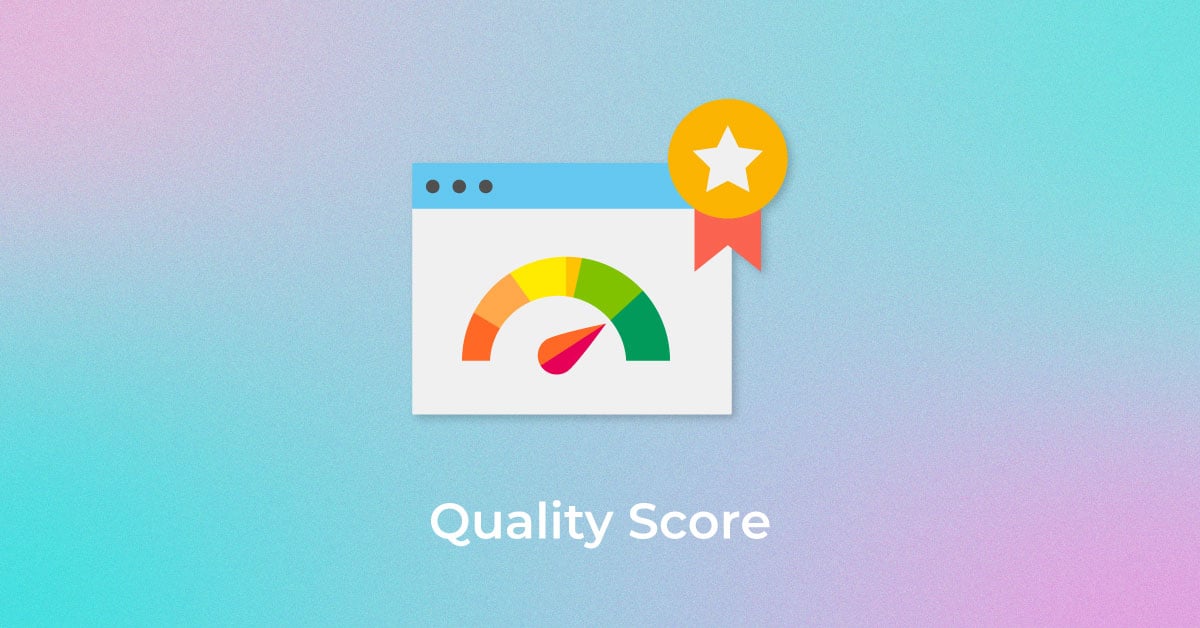
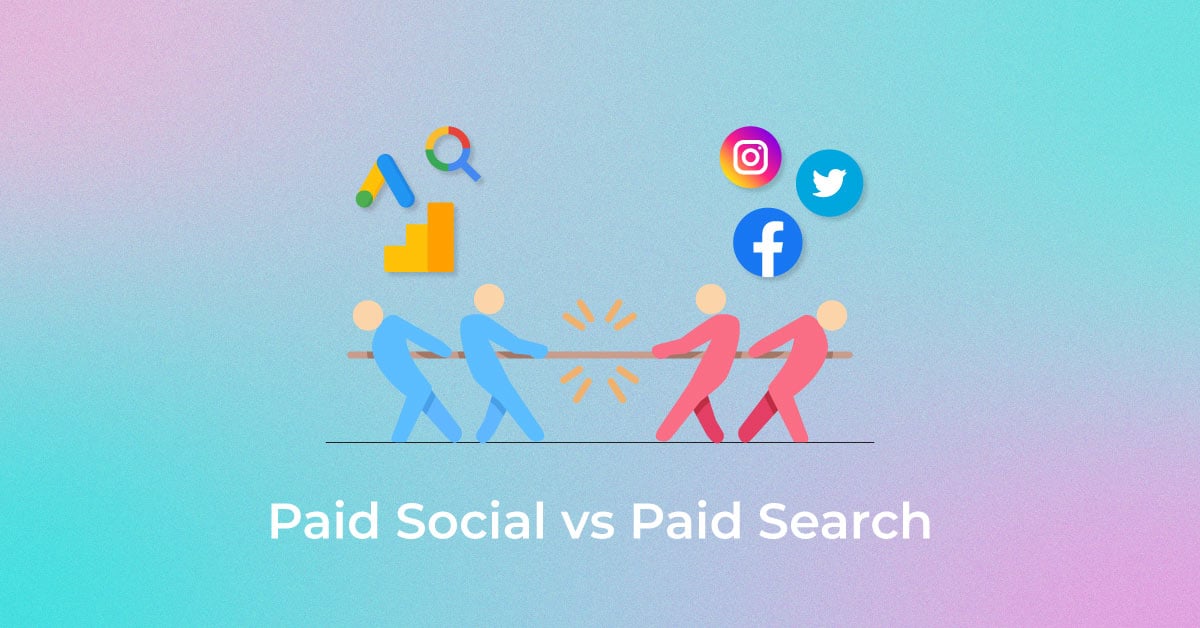
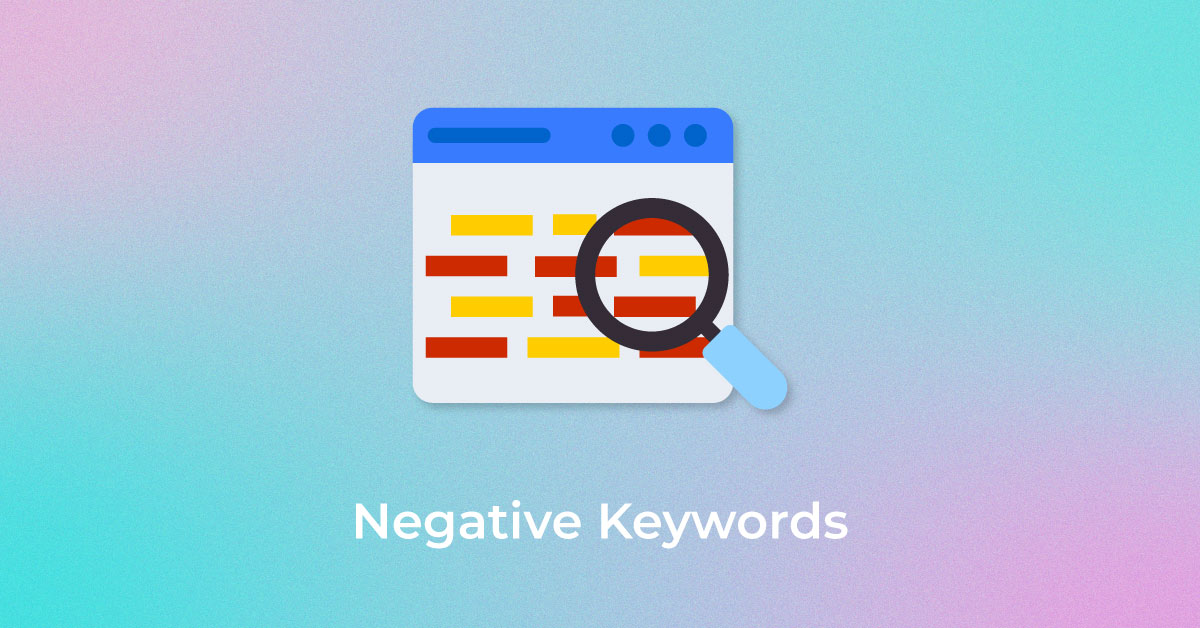
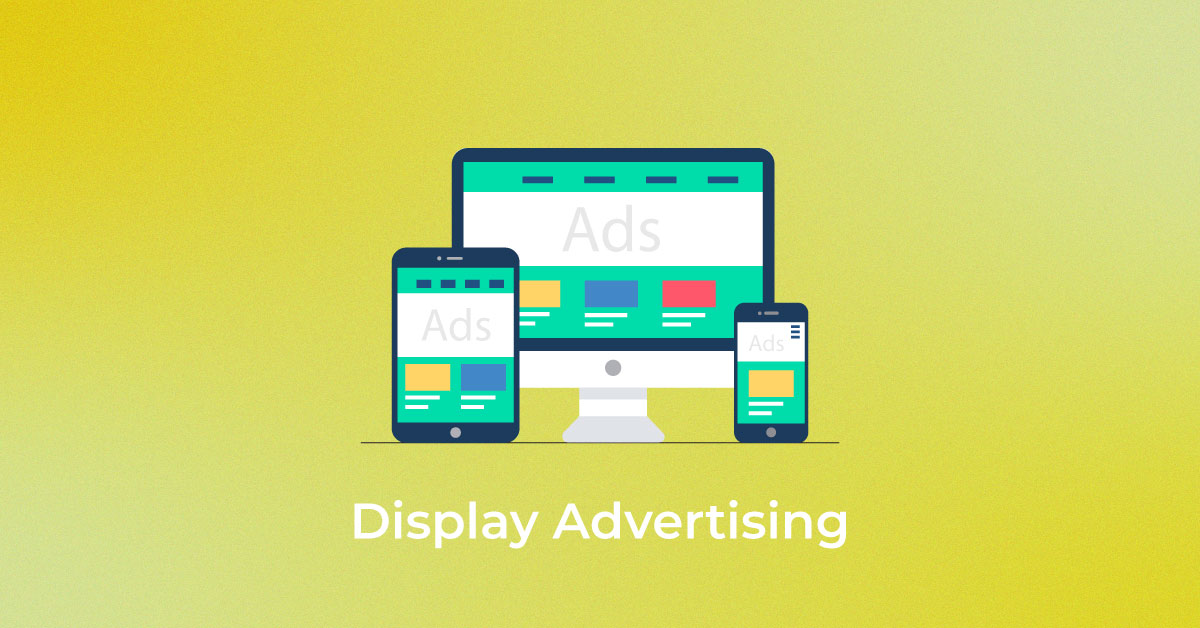
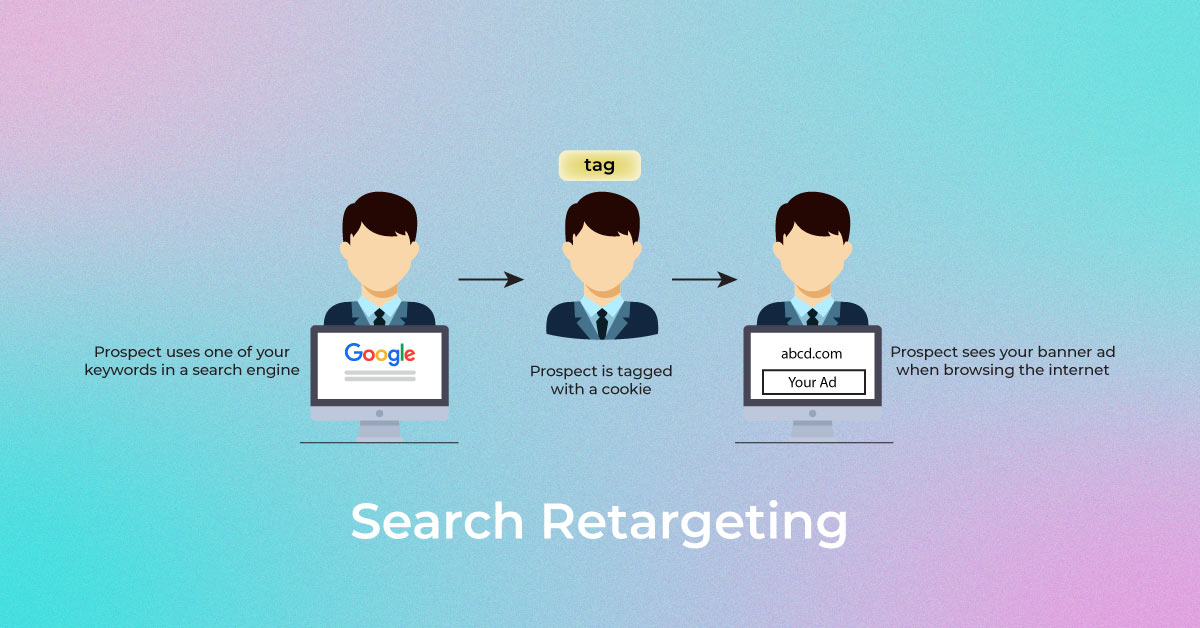
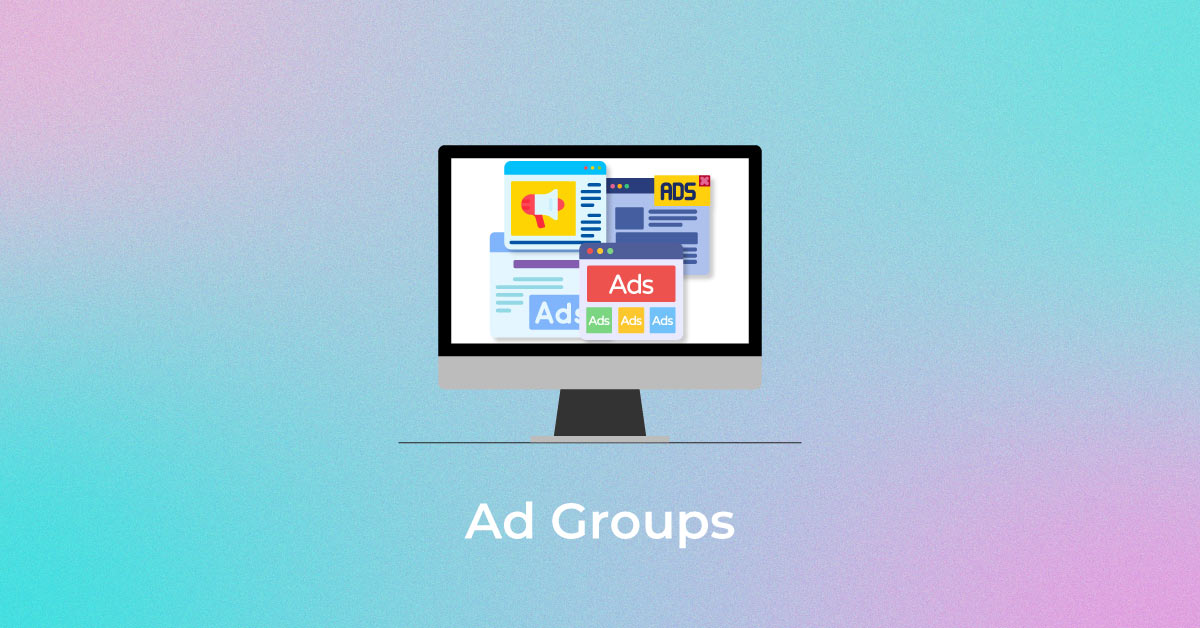

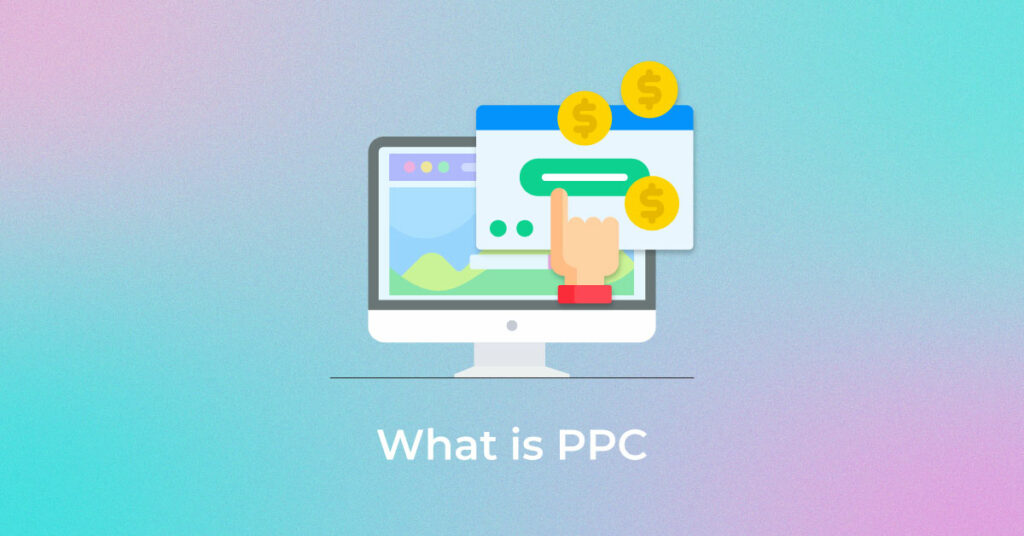
66 thoughts on “What is PPC (Pay Per Click) & How Does Pay Per Click Work?”
This is really great stuff for sharing. Keep It Up. Thanks For Sharing.
Found your article about WHAT IS PAY PER CLICK interesting to read. I cant wait to see your post soon. Good Luck for the upcoming update.This article is really very interesting and effective.
Thanks Leo for liking our blog. We have added many blogs to post your comment. Do check them out in our blog section.
This Post Is Full Of Knowledge And I Would Like To Read Your All Blog. Thanks For Sharing Your
Knowledge With Us. And I Also Want To Learn PPC
Thank you, Sir.
Thank you Kavita, Subscribe to our blogs to receive more information.
Nice article, These tips are really awesome, really like your post. Thank you a lot. Looking forward to more insightful posts in the future. keep going.
Thanks, Linda. Subscribe to us for more latest updates.
Nice article! worth reading this post
With all the points explained in detail
Thank you
Thank you, Abhinav
We also take care of the bidding on behalf of the customers making it sure that our bidding for the ad remains adequate and the ad could show up in the search results. It can be further modified on the basis of age, gender and demographic etc.
Thanks
Hello, Your post is very inspiring to me. And your information about PPC is very amazing and so much helpful for me. Keep it up and Thank you very much. 🙂
Thanks, Ujwal. Check our latest blogs for more updates.
Really very useful blog about PPC Techniques. Thanks for sharing this with us.
Thanks. Read our latest blogs for more updates.
This is really great stuff for sharing. Keep It Up. Thanks For Sharing.
Thanks. Do check our latest posts for more updates.
really very informative post for bloggers who wants to know about PPC marketing. thanks
Thanks. Read our latest posts for more updates.
if one has to genuinely understand what PPC marketing is I recommend this post to him.
Thank You. Do subscribe us for more latest updates.
your post made a mark on everyone’s mind loved to read it. Thanks and keep updating us with your keen observations.
Thanks. Read our recent posts for more updates.
Amazing article! You have given a great explanation of the basics of PPC. I feel the biggest advantage of PPC is that it takes little time to give results. Unlike other online marketing tactics, you can see the benefit of PPC campaigns withing days.
Thanks for sharing your feedback. Check out our latest posts for more updates.
Straight North takes the mystery out of ppc-services.
Thanks.
Your blog is amazing at it gives so many ideas and information.
Thanks. Do subscribe us for more latest updates.
There are many aspects of this article on which I concur with you. You have generated synapses in my brain not used often. Thank you for getting my neurons jumping.
Thanks. Check out our latest posts for more updates.
Great post thanks for sharing this valuable piece of information with us all. It’s a very informative and well-written post.
Nice work keep it up.
Thank You. Check out our latest posts for more updates.
The post is really brilliant and the information is very useful. thanks for sharing such a great Blog.
Thanks. Read our latest posts for more insights.
I am new to affiliate marketing and was searching for a good article to start on and luckily found your useful article. Thanks a lot.
Hi Sanket, thank you for sharing your feedback. Read our latest posts for more insights.
Hi Deepthi! I really liked your blog.
Thanks. Do subscribe us for more latest updates.
Thanks for the information.
We are appreciated. Subscribe to us for more latest updates.
Great information, Thanks for sharing this informative blog with us.
We are glad to know that you liked our post. Please check out our latest posts for more updates.
This is very good work done by you, i appreciate your work keep it up and good luck for you upcoming work.
Digital Marketing Services
Excellent website! I adore how it is easy on my eyes it is. I am questioning how I might be notified whenever a new post has been made. Looking for more new updates. Have a great day!
Thank you for sharing your feedback. Read our latest posts for more updates.
Great! This blog explains how Pay-per-click marketing can be a powerful tool, If your goals are to grow your online visibility, drive traffic, generate leads, and increase sales and to your promotional arsenal.
Thank you for sharing your feedback on pay-per-click marketing. Check out our latest posts for more insights.
Thank you for this piece of information. PPC is surely best when you want results in a very short time.
Thanks, Kinjal for sharing your feedback.
Great post! PPC offers a variety of benefits for businesses of all sizes and across all verticals. pay Per Click is the ability to review your data and optimize your campaigns on the fly. Thank you For sharing this information.
Amazing information you shared
thank you!!!
Thanks, darshan glad to know that you liked our post.
Great post. thanks…
Your welcome. Read our latest posts for more updates.
Thank you for sharing your blog, seems to be useful information
We are glad that you liked our post. Do subscribe to us for more latest updates.
Hey , wow ! what a content , loved it , thanks for sharing it .
The content is fully loaded with valuable information
Thank you for your feedback.
Well. Thanks! Found Interesting and also helped to choose the Best. And also The details are very clearly mentioned which helped me to don’t search in any other Site. Thanks for Sharing
Thank you prasanth. Happy to hear that
Thanks for sharing unique and informational content on PPC. Keep sharing this type of post.
You are Welcome, William. Check out our latest posts for more updates.
Thank you for writing the wonderful blog there is a lot of information is available on how PPC works.
You are Welcome. Subscribe to our blogs to get the latest information on PPC.